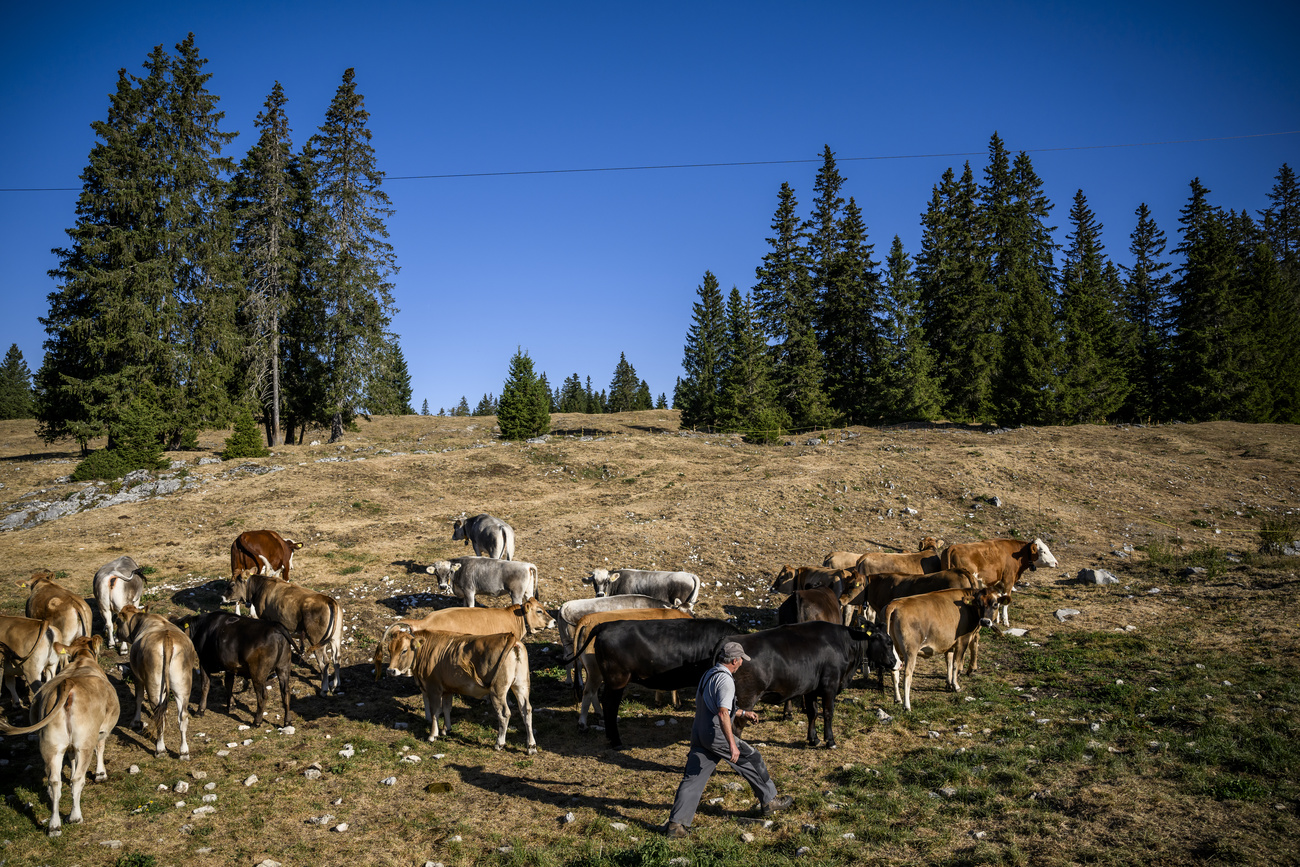Swiss diaspora more keen on pension reform and animal welfare

While the pension reform, which raises the retirement age for women from 64 to 65, was narrowly accepted in Sunday's vote, the Swiss Abroad were more strongly in favour. The majority of voting expats were also in favour of abolishing factory farming and withholding tax unlike resident citizens.
Like their compatriots, the Swiss Abroad voted on Sunday in favour of both the pension reforms in Switzerland. But while the amendment to the law, which raises the retirement age for women from 64 to 65, passed by only a hair’s breadth at the national level, acceptance was much higher among the Swiss diaspora.
The pension reform was coupled with a second item, the increase in value-added tax (VAT) from 7.7% to 8.1%, which was intended to provide an additional source of funding for the pension system. Here again, this component was accepted even more strongly by the Swiss diaspora: 64.5% vs overall support of 55.1%.
One possible explanation for this stronger support for pension reform is that the challenge of sustaining pension systems is common to most developed countries. Many governments have already decided to harmonise the retirement age for men and women, or even to increase it.
“There is therefore certainly greater tolerance of these issues on the part of expatriates,” says Martina Mousson, a political scientist at the gfs.bern research institute. In addition, the increase in the retirement age in Switzerland has less of an impact on Swiss nationals working abroad, who are subject to the system in their country of employment.
A similar logic certainly applied to the increase in the VAT rate, according to Mousson.
“The Swiss diaspora is not a consumer in Switzerland and is therefore less affected by the financial consequences of the measure,” notes the political scientist. In international comparison, she adds, Switzerland has a very low VAT rate, which may make an increase more acceptable from elsewhere.
Different outcomes for two issues
In contrast to the rest of the country, the majority of the registered Swiss expats voted narrowly in favour of the initiative calling for a ban on intensive livestock farming in Switzerland. Mousson attributes the difference to high food prices in Switzerland.
“There is also sensitivity to animal welfare in Switzerland, but here the debate has been strongly focused on rising prices, which does not concern people living abroad,” she says.
On the question of withholding tax, the diaspora did not vote like the rest of the country either and narrowly accepted the measure. Here again, the argument of tax losses put forward by the left, which was at the origin of the referendum, certainly did not carry much weight within the expatriate community.
Average participation
At 52%, the national turnout on Sunday was one of the highest observed in the last five years, above the average of 48%.
The mobilisation of the diaspora, on the other hand, was average. In the 12 districts of Swiss abroad, around 36,500 ballots were cast out of 146,600 registered voters, representing a turnout rate of 25%, two points below the average for votes since September 2017.
As mentioned, the issues put to the vote on Sunday mainly affect people living in Switzerland, which certainly explains the difference in mobilisation, according to Mousson.
Translated from French

In compliance with the JTI standards
More: SWI swissinfo.ch certified by the Journalism Trust Initiative











You can find an overview of ongoing debates with our journalists here . Please join us!
If you want to start a conversation about a topic raised in this article or want to report factual errors, email us at english@swissinfo.ch.